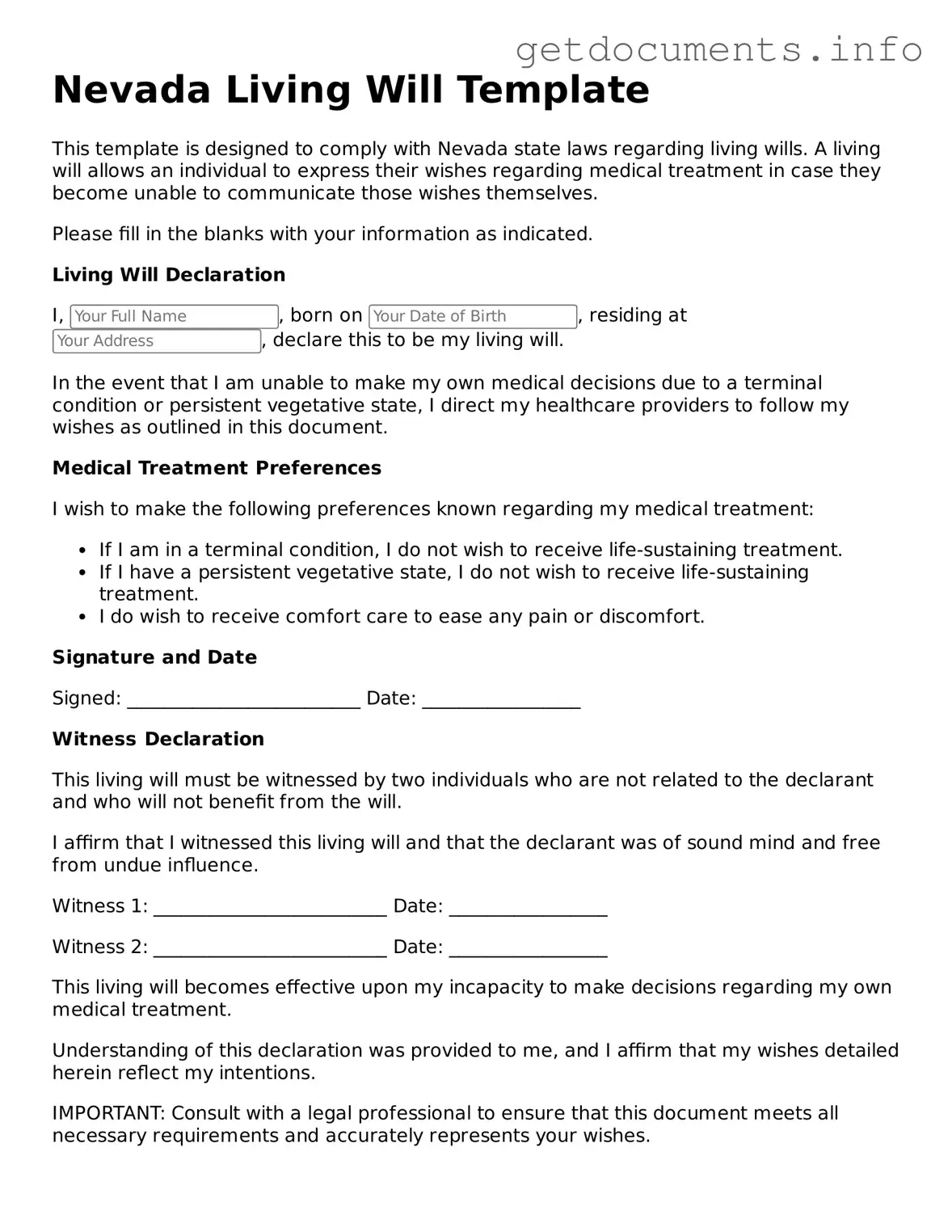Free Living Will Template for Nevada
A Nevada Living Will form is a legal document that allows individuals to outline their preferences for medical treatment in case they become unable to communicate their wishes. This important tool ensures that your healthcare decisions are respected, reflecting your values and desires. Ready to take control of your healthcare decisions? Fill out the form by clicking the button below.
Access Living Will Editor

Free Living Will Template for Nevada
Access Living Will Editor
Got places to be? Complete the form fast
Fill out Living Will online and avoid printing or scanning.
Access Living Will Editor
or
⇩ PDF File
